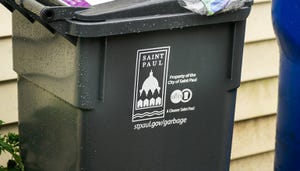Coronavirus and Waste: Be Prepared for What Could Come
PegEx has released guidance for the waste management industry handling COVID-19 materials.
PegEx released a statement in regard to the coronavirus and its effect on the waste management industry, reminding people that the Centers for Disease Control says that it may be possible that a person can get COVID-19 by touching a surface or object that has the virus on it and then touching their own mouth, nose or possibly their eyes, but this is not thought to be the main way the virus spreads.
“It is important to understand the length of time an object can remain infected and how this affects waste haulers and brokers, your employees handling and disposing of the waste, as well as those reporting it,” stated PegEx.
Currently, there are more than 127,000 cases of COVID-19 worldwide. In the U.S., cases passed 1,300 within the first few weeks of the virus entering the United States, as seen in the Live Tracking Map created by John Hopkins Research Team.
The World Health Organization reports that it is not certain how long the virus that causes COVID-19 survives on surfaces, but it seems to behave like other coronaviruses. Studies suggest that coronaviruses (including preliminary information on the COVID-19 virus) may persist on surfaces for a few hours or up to several days. This may vary under different conditions (e.g. type of surface, temperature or humidity of the environment) and is where those in the waste management industry should take caution.
Generators of hazardous waste and/or universal waste must follow federal and state hazardous waste laws. The intent of these laws is to ensure that hazardous waste is properly managed to protect public health and the environment.
“Without agile processes, technology and the proper infrastructure in place, failure implications could be substantial in an already highly complex and regulated industry,” said David DiPasquale, SaaS CRO for PegEx, in a statement.
Occupational Safety and Health Administration (OSHA) states that workers and employers should manage waste contaminated with COVID-19 as they would other regulated medical waste. OSHA also states that workers use appropriate engineering and administrative controls, safe work practices and personal protective equipment, such as puncture-resistant gloves and face/eye protection, to prevent worker exposure to medical waste, including sharps and other items that can cause injuries or exposures to infectious materials.
OSHA states that exposure risk may be elevated for some workers who interact with potentially infected travelers from abroad, including those involved in solid waste, as well as hazardous waste management. PegEx’s guidance for managing COVID-19 materials is available here.
About the Author(s)
You May Also Like


